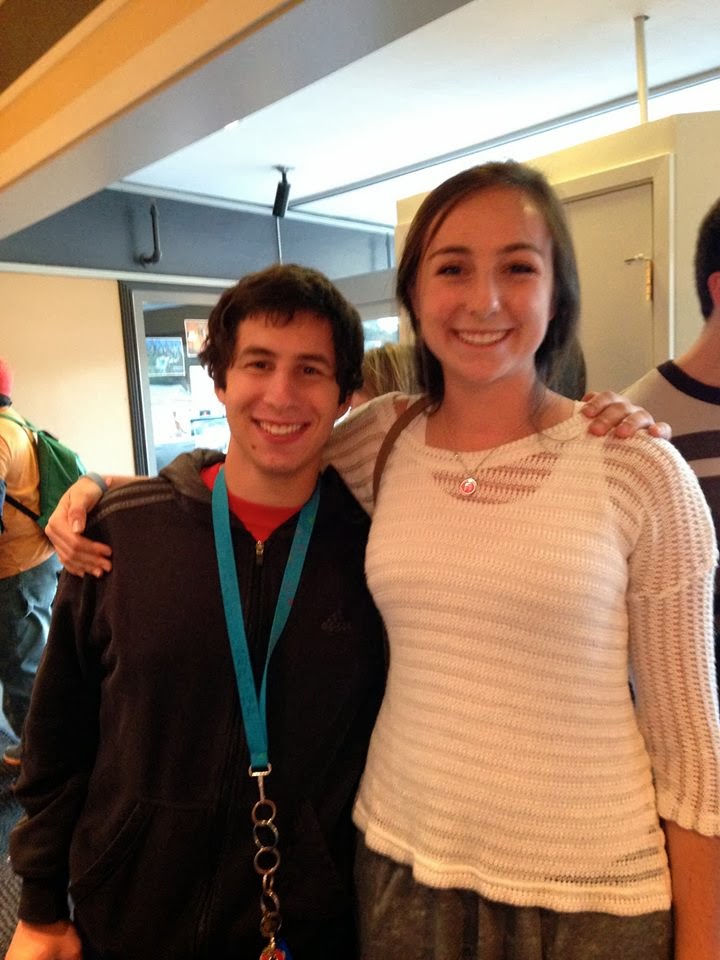Cohort
17 learned about tolerance, openness, and the brief histories of Israel and
Russian Jews. It was interesting and definitely engaging to consider new ideas
and topics, and envision ourselves in situations so different from our own,
knowing they are so prevalent to each of our stories. The workshop consisted of
discussing connections to the Jewish people outside of our closer communities
and meeting with Rabbi David Lazar and Irina Klay.
In
the previous workshops, we have discussed Jewish identity, Israel, and several
other topics. This workshop, however, was one of the first conversations where
we thoroughly explored the topic of our connection to the rest of the world and
other Jewish communities. The conversation included questions like “when did
you realize you were part of something bigger?” and “how do we realize our
connection with other Jews or Jewish communities?” In response to questions
like these, many agreed that our connection and our awareness for this
connection to other Jewish communities stems from becoming maturing and
becoming more involved in our own communities. By developing ourselves in each
community, whether it be our school, temple, etc., we are widening our circles
and our visions of our effects of the world.
Rabbi
Lazar then spoke to us about a brief history of Israel and the Jewish people,
including our traditions. We considered ideas such as young marriages and
widened our knowledge of how Jewish people ended up in Israel. We discussed the
Jewish tribes and being exiled from many, many places. The most intriguing
aspect of this meeting with Rabbi Lazar, in my opinion, was the discussion of
tolerance and openness. We talked about the difference between the two ideas,
and what expectations we have of the people around us. Do we want people to be
tolerant of us or open to us? How do we expect ourselves to act with those we
are not necessarily in agreement with? I believe that openness for those with
different ideas or beliefs contributes significantly to the type of people we
are and our part in being Diller teens.
With Irina, cohort 17 learned about the history of Russian Jews, which was also
interesting considering I know very little about the topic. We then played out
a wedding, each of us resembling realistic jobs. There were poor and rich Jews,
there were announcers, and of course, a bride and groom. It was especially
funny considering the bride was a boy and the groom was a girl. It was interesting
for me to consider how all our histories and the themes brought to the table
influence our personal stories and how they affect and will continue to
influence us as Dillers of Cohort 17.
~ Sydney

















